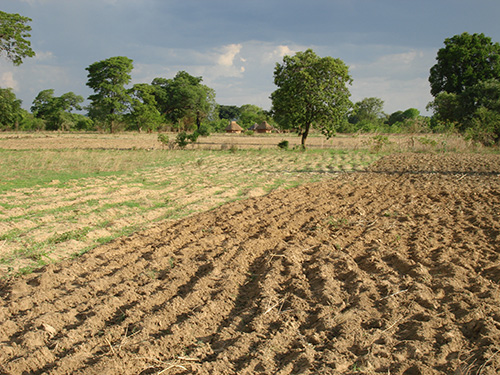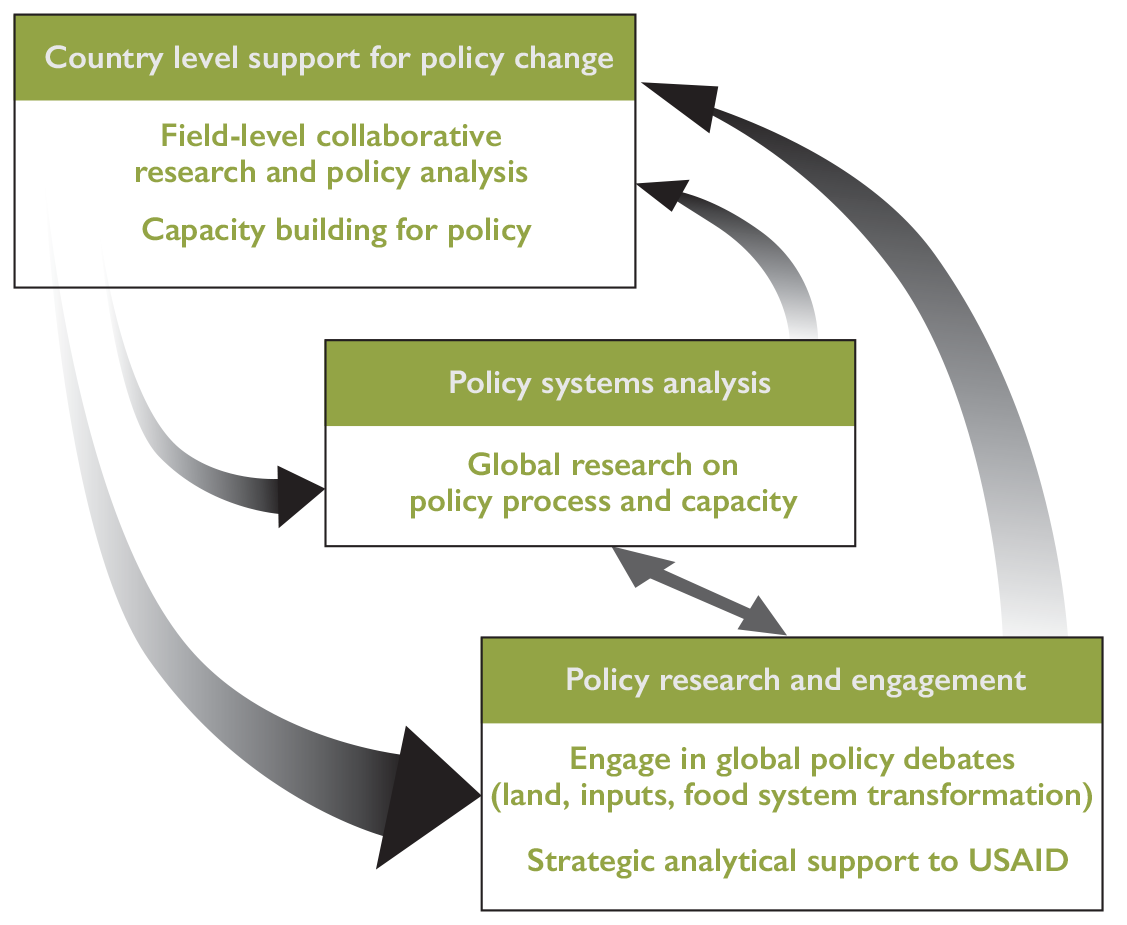This site is currently under development and is not yet launched. If this site is ready to be launched, please contact webadmin@anr.msu.edu.
Project Components
 FSP tackles five specific problems that must be addressed in order to ensure sustainable agricultural growth and improved nutritional status of men, women and children:
FSP tackles five specific problems that must be addressed in order to ensure sustainable agricultural growth and improved nutritional status of men, women and children:
1. Inadequate farm, firm, and market information that leads to ill-informed policy making.
2. Weak food security policy capacity in government, private sector, civil society, and academia that results in unsustainable program and policy responses, exemplified by the recent return in some countries to the food self-sufficiency programs that proved so costly in the 1980s.
3. Governments and policy makers have inadequate understanding of the most effective food security policy institutional and consultative arrangements.
4. Major global policy discussions and decisions are not grounded on solid farm, firm, and market information and analysis.
5. The donor community lacks access to up to-date information related to food security policy and long-term and strategic analysis looking toward the future. Strengthening policy systems at the country level is the foundation for resolving these problems.
Accordingly, FSP activity implementation is organized under five interrelated components:**
Component 1/2:
Country-level Research and Capacity Building
Component 3:
Global Collaborative Research on Support to the Policy Process and Policy Capacity
Component 4:
Engagement in Global Policy Debates on Food Security
C 4a: Upstream
C 4b: Downstream
Component 5:
Strategic Analytical Agenda and Support to Donor Policy and Strategy

** In most cases, the same staff, resources and actions working on field-level research and policy analysis undertake this work in ways that intentionally build capacity, so the first two components are lumped together for organizational purposes.
Photo: Field in Zambia (credit: Nicholas Sitko)


